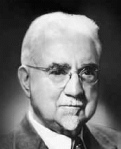 Temples are the most sacred places of worship on earth where sacred ordinances are performed—ordinances which pertain to salvation and exaltation in the kingdom of God. Each one is literally a house of the Lord—a place where He and His spirit may dwell, where He may come or send others to confer priesthood blessings and to give revelation to His people….
Temples are the most sacred places of worship on earth where sacred ordinances are performed—ordinances which pertain to salvation and exaltation in the kingdom of God. Each one is literally a house of the Lord—a place where He and His spirit may dwell, where He may come or send others to confer priesthood blessings and to give revelation to His people….
At Kirtland, the Lord revealed to the Prophet Joseph:
“And inasmuch as my people build a house unto me in the name of the Lord, and do not suffer any unclean thing to come into it, that it be not defiled, my glory shall rest upon it;
“… and my presence shall be there, for I will come into it, and all the pure in heart that shall come into it shall see God.” (D&C 97:15–16.)
It is true that some have actually seen the Savior, but when one consults the dictionary, he learns that there are many other meanings of the word see, such as coming to know Him, discerning Him, recognizing Him and His work, perceiving His importance, or coming to understand Him.
Such heavenly enlightenment and blessings are available to each of us.
David B. Haight, “Temples and Work Therein,” Ensign, Nov 1990
 The Lord may be seen in the temple.
The Lord may be seen in the temple.
A temple is a house of the Lord; it has been given to him as a place where he may lay his head, as it were; it is his earthly abode. What is more natural, when he visits an area of the earth, than to come to his house in that area? This is his practice; so he said with reference to one of his temples, and it applies in principle to them all:
15 And inasmuch as my people build a house unto me in the name of the Lord, and do not suffer any unclean thing to come into it, that it be not defiled, my glory shall rest upon it;
16 Yea, and my presence shall be there, for I will come into it, and all the pure in heart that shall come into it shall see God.
17 But if it be defiled I will not come into it, and my glory shall not be there; for I will not come into unholy temples. (D&C 97:15-17)
– Elder Bruce R. McConkie, New Witness for the Articles of Faith, p. 497





